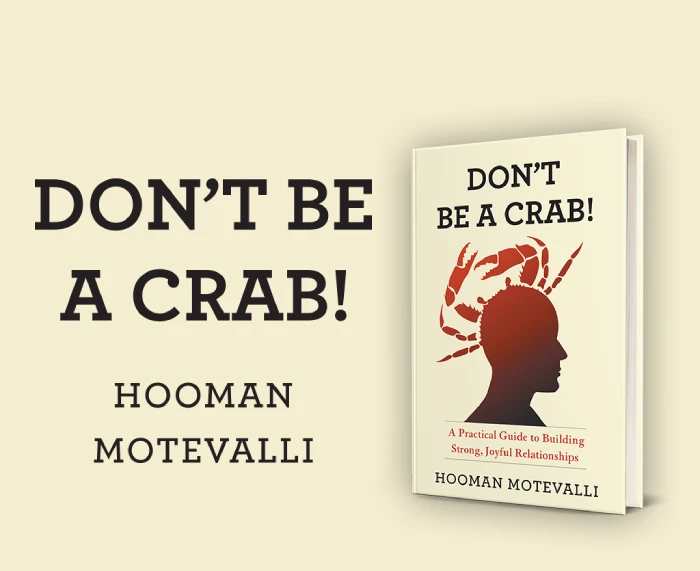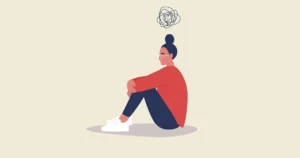One-third of your time should be spent doing something so crucial. What do you think that is? You probably think work, family, or leisure are the top contenders. But consider a better contender—one-third of your time should be devoted to sleep, and here’s why—the benefits of enough sleep.
Many people see sleep as downtime when their brain switches off and their body rests. Rushing to meet work, family, or household responsibilities, they cut back on sleep, thinking it’s not as important. However, research shows that vital processes during sleep are essential for good health and peak performance.
When you sleep, your brain works hard to create pathways for learning and memory. With enough sleep, you can focus, pay attention, and react quickly. Lack of sleep can even lead to mood issues. It has also been discovered that chronic sleep deprivation can raise the risk of obesity, diabetes, heart disease, and infections.
Despite growing evidence that sleep, like nutrition and exercise, is critical for well-being, people sleep less. The non-stop nature of our world encourages longer work hours and constant access to entertainment, leading people to sacrifice sleep for hustle. There’s a common myth that we can adapt to minimal sleep without harm, but research indicates that adults need 7-8 hours of sleep for proper rest. A century ago, most people slept 9 hours a night, but recent surveys show that the average adult now sleeps less than 7 hours, with over one-third experiencing daytime sleepiness affecting their work and social lives.
As many as 70 million Americans may suffer from chronic sleep loss or sleep disorders, resulting in $16 billion in healthcare costs and $50 billion in lost productivity annually. But that should not be you, right? It’s time to recognize the benefits of enough sleep.
In this article, I’ll show you the benefits of enough sleep and how it can positively impact your life and health.
Top 7 Benefits Of Enough Sleep
While you think of the hustle and bustle of daily life, you’ll find that everything you do can be done better when you get enough sleep. So, here are the seven major benefits of enough sleep:
Getting Enough Sleep Improves Your Attention And Concentration.
Have you ever noticed those times when your mind tends to wander, and you struggle to maintain your focus and attention? The culprit might be a lack of proper sleep. When you don’t sleep enough, your body and your brain may refuse to function at their best the next day.
This can affect your attention span, concentration, strategic thinking, risk assessment, and reaction times. Sleep deprivation increases the likelihood of making mistakes or having accidents. When you prioritize getting sufficient sleep, it helps you stay sharp, attentive, and focused throughout the day.
It Helps You Maintain A Healthy Weight.

Many people complain about fluctuations in their weight or struggling to maintain a healthy body.
Think about it: if you’re not getting the proper amount of sleep, your body stays awake longer, demanding more energy. Unfortunately, this can lead to overeating and choosing calorie-rich foods, especially later in the day.
Lack of sleep can also disturb your hormonal balance, increasing hunger and fullness in your body. Also, when you feel tired due to inadequate sleep, you may have less energy for physical activity. This is why ensuring you get enough sleep helps you maintain a healthy weight.
Getting Enough Sleep Improves Your Memory.
When you get a good night’s sleep, you’re not just resting; your brain is busy enhancing your memory and reinforcing the skills you’ve learned while awake. This process, known as consolidation, helps solidify memories and improve your performance on tasks you’ve practiced. You will find yourself performing better after a restful night’s sleep.
It Reduces Your Stress.
Your daily activities can be quite demanding, and the pressure can affect your stress levels. Not getting enough sleep can make matters worse. According to a May 2021 Annals of Behavioral Medicine article, stress and sleep have a close, bidirectional relationship.
This means that stress can lead to sleep issues and vice versa. Also, there’s a link between stress and sleep regarding their impact on cardiovascular health. Quality sleep can help lower stress levels, contributing to better blood pressure control. Sleep is also believed to influence cholesterol levels, which is crucial in heart disease.
You Have The Potential To Live Longer.
You might think that the connection between sleep and longevity is not quite straightforward, but this has an important role in your overall health. Too much or too little sleep can impact your lifespan.
Oversleeping, which is defined as sleeping more than 9 hours within 24 hours, is associated with chronic diseases like heart disease, obesity, and diabetes. Research showed that people who sleep between seven and eight and a half hours without falling below seven hours or exceeding nine hours can expect to enjoy one to three more years of a longer and healthier life.
It Improves Your Creativity.
You’ll be amazed to see how the benefits of enough sleep can boost your creativity. Having a good night’s sleep will not only strengthen your memories but also reorganize and restructure them. This process can lead to increased creativity.
When you get sufficient sleep, your brain has the chance to work its magic on your memories, sparking new and creative ideas. A well-rested mind is a more creative, ready to tackle challenges and come up with fresh ideas.
Getting A Proper Night’s Sleep Boosts Your Energy And Alertness.
Maybe one reason why you doze off during the day is the lack of a good night’s sleep. A proper night’s sleep boosts your energy, which, in turn, helps you stay alert and focused. This increased alertness makes it easier to engage in daily activities and exercise.
When you feel energized and alert, it’s also simpler to engage in physical activities, indirectly benefiting your exercise routine.
Now that you have seen the benefits of enough sleep let’s look at tips to get better sleep.
6 Tips To Get Enough Sleep
Stick To A Consistent Sleep Schedule.

Allocate about eight hours for sleep, but as a healthy adult, aim for at least seven hours; you rarely need more. Go to bed and wake up at the same time daily, even on weekends. This routine strengthens your body’s natural sleep-wake cycle.
If you can’t fall asleep within about 20 minutes, leave your bedroom, do something calming, like reading or listening to soothing music, and return to bed when tired. Repeat as necessary, but always maintain your sleep schedule.
Watch What You Eat And Drink.
Stay out of bed super hungry or uncomfortably full. Avoid heavy or large meals within two hours of bedtime, as they might cause discomfort. Be cautious with nicotine, caffeine, and alcohol; their stimulating effects can linger for hours and disrupt your sleep.
Create A Relaxing Sleep Environment.
Keep your bedroom cool, dark, and quiet. Exposure to evening light can hinder sleep, so avoid bright screens before bedtime. Consider using room-darkening shades, earplugs, a fan, or other tools to create your ideal sleeping atmosphere. Wind down with calming activities, like a bath or relaxation techniques, before bedtime to encourage better sleep.
Limit Daytime Naps.
While daytime naps can be tempting, especially for night workers, they can interfere with nighttime sleep. If you need a nap, limit it to one hour and avoid late-day naps.
Stay Active
Regular physical activity promotes better sleep, but avoid vigorous exercise close to bedtime. Spend time outdoors daily.
Manage Stress
Address your concerns before bedtime by jotting them down and setting them aside for the next day. Stress management, like getting organized, setting priorities, and meditation, can help ease anxiety.
When To Seek Professional Help
An occasional sleepless night is normal, but if sleep troubles persist, it’s wise to contact your healthcare provider. Identifying and addressing any underlying issues can lead to the quality of sleep you deserve.
Conclusion
In this era of increasing demands and fast-paced living, you can’t afford to put your health at risk by neglecting the benefits of enough sleep. Sleep is not merely a luxury; it’s a fundamental component of a healthy, productive life.
In this article, you’ve seen how adequate sleep can improve your attention, concentration, memory, and even your creativity. All these positive outcomes stem from something as simple as ensuring you get the right sleep each night.
Don’t get caught in the trap of thinking that less sleep equates to increased productivity. Sleep deprivation can hinder your performance and negatively impact your well-being.
If you’re looking for the one thing to change to improve your life, the key to unlocking your full potential and living a healthier, happier life, check out my book “DON’T BE A CRAB.” You will be amazed at the positive transformation it can bring to your life. Your health, your creativity, and your well-being are all within your grasp when you choose to make sleep a priority.







